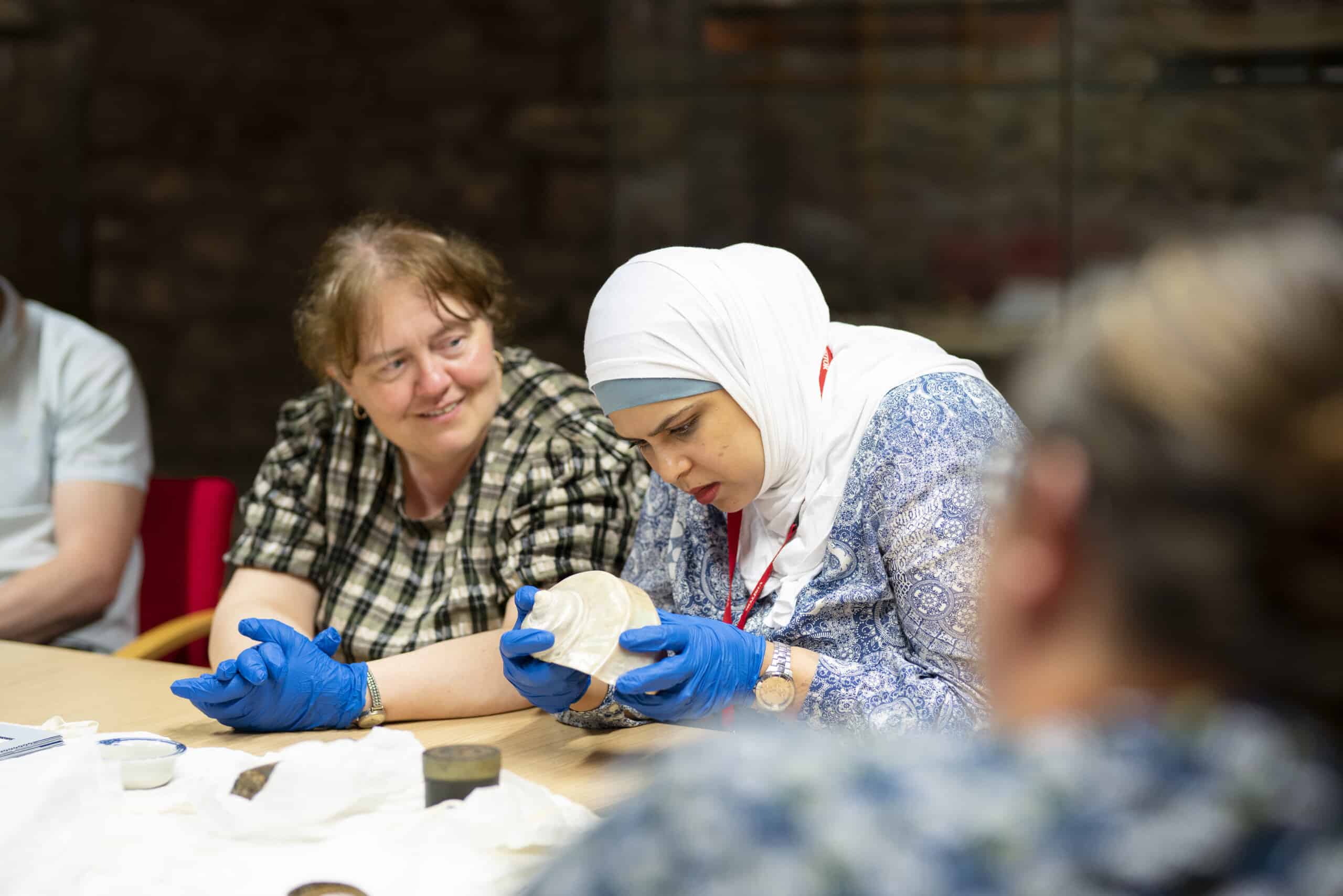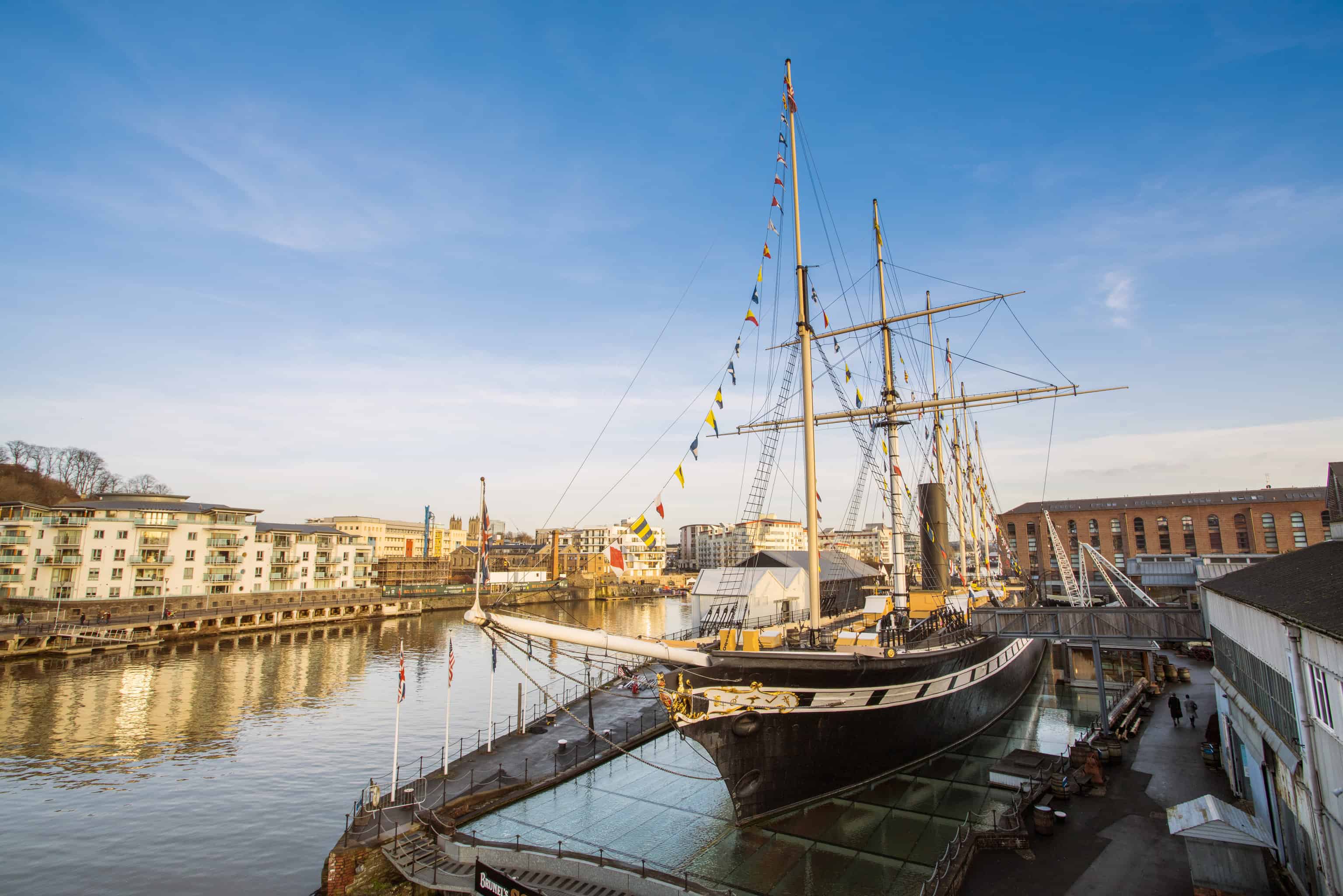Mission and Values
Goals, Mission, Values, Equality, Inclusion, Diversity and Global Citizenship
The SS Great Britain Trust is a dedicated education charity (No.262158) that cares for Brunel’s SS Great Britain and the national Brunel Collection within a 19th century dockyard complex in Bristol. It is Accredited as a museum, and its collections are Designated as of national importance by Arts Council England. It preserves the SS Great Britain and two related museums, and cares for the collections and library from the Brunel Institute, in a partnership with the University of Bristol. The Trust tells the stories of many people from history in order to enthuse people and help elucidate understanding of our past and our future. It has a particular focus on inspiring young people, using the legacy of Isambard Kingdom Brunel, with contemporary science and engineering and helping them understand not only the world today but their own potential within it

As a registered charity the Trust raises funds, sells tickets, and operates a gift shop and catering outlets. All the funds raised are devoted solely to delivering the formal charitable objects of the Trust as legally required. These are:
A – To preserve the SS Great Britain in the Great Western Dockyard for all time – for the benefit of the public
“To conserve and preserve the SS Great Britain in the Great Western Dockyard for all time for the benefit of the public as a ship of historic and scientific interest and to place the same upon public display as a museum accessible for all.”
B – To increase the sum of public knowledge and to promote the study of history, engineering & science, and the life and works of I.K. Brunel – for the benefit of the public
“To increase the sum of public knowledge and to promote the study of: maritime & industrial engineering & science; maritime archaeology & social history; the life and works of I.K. Brunel and his historic context and significance in the modern world; and to collect, conserve, and make accessible as a museum, artefacts and specimens that demonstrate and reflect a tangible link with the past and present of those subject areas, for the benefit of the public.”
The Trust has a vision of ‘A world inspired by the life and legacy of Brunel.’
The Mission of the Trust is ‘To preserve the SS Great Britain and Brunel’s legacy, and to help as many people as possible enjoy discovering them.’
Values of the Trust
Everyone that works or volunteers at the Trust commits and adheres to its core values. These are Surprise, Authenticity, Fascination, Excellence, and Relevance, and they are expressed in everything we do. The Trust is also committed to becoming genuinely ‘accessible for all’, and continues to change and improve its accessibility for staff, volunteers, visitors, supporters and stakeholders of all kinds, all needs, and all backgrounds equally.

Authenticity
Uncover the evidence for the real stories of the ship and collections as they actually were. The SS Great Britain Trust and the staff and volunteers of the Brunel Institute continually researches into the stories of the lives of everyone affected or involved with the SS Great Britain and Brunel. In that task we uphold our core value of Authenticity at all times in all communications and displays by the staff and volunteers that serve the Trust. The Trust always aims to reflect the truth as best as it can be ascertained at any one time in order to represent our understanding to the public as far as possible of what this history was actually like. The stories we tell do change as our own understanding is changed and updated by research and collaboration, but we do not shy away from telling difficult and challenging histories. The ship carried many people to and from Australia, Russia, Türkiye, Malta, United States of America, Chile, Sicily, the Falkland Islands, and India. Some of those 32 global voyages carried soldiers to the war against Russia in the Crimea, and to the Indian rebellion against British rule. We shall always display integrity and honesty in delivering authenticity to all our audiences.
Fascination
There’s always a wealth of rich content and collections to explore and delve deeper into that encourages learning and builds knowledge. The Reality is often more fascinating than the myth. New stories are added to the familiar, and our understanding changes all the time. Finding out new things and relating stories new and old to audiences of all backgrounds is alluring and attractive to the storyteller and to the listener/viewer/participant.
Excellence
Everything from the SS Great Britain Trust is built on relentless standards of quality, integrity, and research. The Trust has built on this value inexorably, and all the staff and volunteers have contributed to bringing to the charity over 50 regional, national and international and prizes for the quality of everything that the Trust delivers. See later pages for a list of prizes awarded.
Relevance
Feel part of the story, and understand the importance of the past for the present and the future. As a contemporary charity and museum with a clear educational role and purpose the Trust strives to bring the stories it tells into a modern context. It uses the past to illuminate the future, and it uses the legacy of Brunel and his circle to inspire people of all ages in the present and future of science and engineering.
Surprise
There’s always something new to delight and inspire. Our job is often to bring out hidden and unexpected stories from the archives and records that survive in the Brunel Institute. It is always a joy to find new stories of new people that we can bring into the light of day for every visitor to examine and enjoy. The Global Stories database is available online at all times, and is continually receiving new names and stories about the hugely diverse and interesting characters that made up the passengers and crew of the ship. So far we know of 48 different nationalities on board among some 30,000 passengers and crew.

Is the SS Great Britain a Slave Ship?
No, it is not. The SS Great Britain was built specifically to carry paying passengers between Bristol and New York only, and it was created in 1843, some 30 years after the trade in enslaved people was abolished. However, it did play a major part in the colonisation of the continents of Australia and North America, not only bringing new ideas, new people, and innovations to those lands, but also inherently enabling the demeaning or deadly exploitation and oppression inherent in 19th century imperialism and globalised trade.
Bristol’s own history is entwined with the transatlantic trade in enslaved people, and its legacy remains with us today. Many buildings and developments in Bristol were funded from the fortunes made by the owners and traders in enslaved people. While the SS Great Britain and the Brunel family did not have a direct connection to slavery, the same is not true for some of the people who invested in the shipbuilding work for the Great Western and the Great Britain in Bristol. Some of the investors in the Great Western Steamship Company are known to have owned enslaved people on plantations in the West Indies, and to have been involved in human exploitation elsewhere, or at least to have benefitted financially from the government compensation paid to former owners of enslaved people on abolition. This includes, for example, Gibbs & Bright who went on to purchase and operate the SS Great Britain after her refit and sale in 1850.
These are the people that the Trust has so far identified in its research who were connected to the Great Western Steam Ship Company (GWSSCo.), builders of the SS Great Britain and PS Great Western, and who also were connected with the compensation scheme:
Robert Bright (Shareholder GWSSCo., Claimant) – UCL Record
Henry Bush (Shareholder GWSSCo., Claimant) – UCL Record
George Gibbs (Shareholder GWSSCo., Claimant) – UCL Record
Thomas Kington (Shareholder GWSSCo., Claimant) – UCL Record
James Cunningham – (Potential Shareholder, Claimant) – UCL Record or UCL Record
Peter Maze (Shareholder GWSSCo., Unsuccessful Claimant) – UCL Record
Philip John Miles (Miles & Harford Bank, bank of the GWSSCo., Individual Claimant) – UCL Record
Jeremiah Osborne (Osborne Ward & Sons, Solicitors to GWSSCo., Individual Claimant) – UCL Record
William Claxton (Initial Trustee of the GWSSCo., Individual Claimaint) – UCL Record
The Trust has recently become responsible for the Albion Dock, a former part of the Hill/Hilhouse shipyard built in 1820, but using investment from the shipbuilding Hilhouse family who built many ships in the 18th century for Bristol merchants trading with the East and West Indies.
The Trust stands in solidarity with all who support the fight against racism, injustice and inequality across the world. The Trust has an important role to play as a museum in describing and supporting an inclusive and equal society, and helping learn the lessons of the past. The Trust is an equal opportunities employer, and is committed to listen and learn from our diverse communities and cultural partners, in order to bring positive change in the workplace, in the city and especially through its global connections as a maritime museum linked with all continents by the ocean
The Trust is committed to achieving equal access for all its visitors and staff by breaking down barriers.
a) The SS Great Britain Trust welcomes everyone to the SS Great Britain and the Great Western Dockyard and is committed to remove all barriers to inclusive and full access wherever possible.
b) In accordance with the Equality Act (2010), the SS Great Britain Trust does not discriminate on the grounds of race, sex, gender reassignment, marital status, age, religion, disability, pregnancy or sexual orientation in all areas of its work. In addition, we will work to break down barriers faced by people based on their socio-economic background.
c) All staff will be provided with appropriate training to ensure they understand their responsibilities in fulfilling this policy.
d) The SS Great Britain Trust will continually review and where practicable modify its access provision, both actual and planned, in respect of current statutory guidelines and models of best practice published by relevant bodies and authorities.
This equal access policy has been written with reference to The Equality Act (2010).
We believe that all decisions about people at work should be based on the individual’s abilities, skills, experience, performance and behaviour and our business requirements.
a) The Trust will always seek to employ the best person for the job. No job applicant or employee should receive less favourable treatment on any grounds not relevant to good employment practice. The Trust ensures all applications for employment are anonymised, and it applies the Rooney Rule in order to ensure that at least one person from a background that is currently underrepresented on the Trust’s workforce is present on every interview shortlist.
b) Recruitment will be conducted consistently, and in all cases will follow the Trust’s recruitment procedure.
c) The Trust is aware of its obligations with reference to the following legislation and this policy has been written in accordance with these: the Equality Act (2010), the Employment Equality Regulations and the Rehabilitation of Offenders Act.


